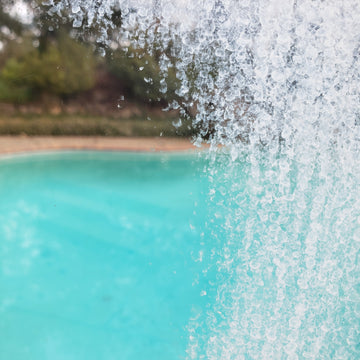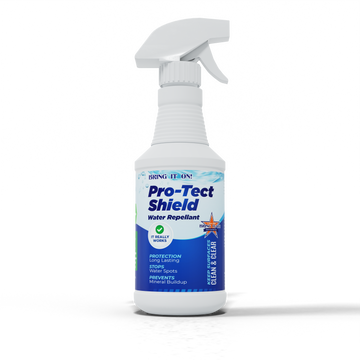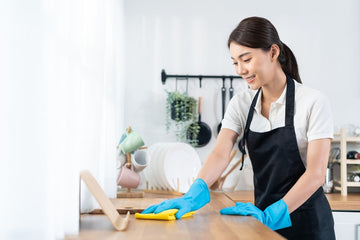Removing Hard Water Stains
Introduction: Banish Hard Water Stains and Restore Your Shine
If you've ever noticed those stubborn, cloudy patches on your shower doors or the streaks on your windows, you're not alone. These unsightly marks are often caused by hard water stains, a common issue for many households. Fortunately, with the right techniques and a bit of patience, you can effectively remove hard water stains and bring back the sparkle to your fixtures and glass surfaces. In this comprehensive guide, we'll explore proven methods, helpful tips, and preventive strategies to tackle hard water stains confidently.
Understanding Hard Water Stains: What Causes Them?
Before diving into removal techniques, it's essential to understand what hard water stains are. Hard water contains high concentrations of minerals, primarily calcium and magnesium. When water evaporates from surfaces like glass or ceramic tiles, it leaves behind mineral deposits, creating the often white, cloudy, or chalky appearance known as hard water stains.
These deposits can accumulate over time if not addressed, making stains more stubborn and difficult to remove. Recognizing the causes empowers you to combat the problem more effectively and prevent future buildup.
Tools and Supplies You'll Need
- White vinegar or lemon juice
- Baking soda
- Spray bottles
- Soft scrub brush or sponge
- Microfiber cloths or paper towels
- Old toothbrush
- Commercial descaling products (optional)
- Protective gloves
- Water and mild dish soap
Step-by-Step Guide to Remove Hard Water Stains
1. Start with Natural Acids: Vinegar and Lemon Juice
Vinegar is a household hero when it comes to dissolving mineral deposits. Its acetic acid reacts with calcium and magnesium, breaking down the residues that cause hard water stains.
How to use:
- Fill a spray bottle with white vinegar or freshly squeezed lemon juice.
- Spray generously onto the stained surfaces, ensuring full coverage.
- Allow the solution to sit for at least 15-30 minutes — for stubborn stains, overnight soaking may be necessary.
- Scrub gently with a soft sponge or brush to lift softened deposits.
- Rinse thoroughly with warm water and dry with a microfiber cloth.
2. Make a Baking Soda Paste for Extra Power
Baking soda is a gentle abrasive that helps scrub away residual stains without scratching surfaces.
How to use:
- Mix baking soda with a small amount of water to create a paste.
- Apply the paste directly onto the stained areas.
- Gently scrub with a soft brush or sponge.
- For enhanced results, spray vinegar over the baking soda paste — it will fizz, helping lift the mineral buildup.
- Let it sit for 10-15 minutes, then rinse thoroughly and dry.
3. Tackle Persistent Stains with Commercial Descalers
If natural remedies aren’t enough, there are commercial descaling products designed specifically for hard water stains. Be sure to read labels and follow manufacturer instructions carefully. Always wear gloves and ensure proper ventilation when using chemical cleaners.
Preventing Future Hard Water Stains
Prevention is key to keeping your surfaces spotless and reducing the frequency of deep cleaning sessions. Here are some effective strategies:
1. Install a Water Softener
A water softener reduces mineral content in your water supply, significantly decreasing the likelihood of hard water stains forming.
2. Regular Cleaning and Wiping
After every shower or rain, wipe down glass doors and windows with a squeegee or microfiber cloth to remove water droplets before they dry and leave deposits.
3. Use Protective Coatings
There are commercial water-repellent coatings designed for glass and ceramic surfaces. Applying these creates a barrier that repels water, minimizing stain formation.
4. Keep Surfaces Dry and Well-Ventilated
Good ventilation helps surfaces dry faster, preventing mineral residue buildup. Consider installing exhaust fans in bathrooms and using dehumidifiers indoors.
Additional Tips for Success
- Test cleaning solutions on a small inconspicuous area first to ensure no damage occurs.
- For large or difficult stains, patience and repeated treatments often yield the best results.
- Avoid abrasive pads or harsh chemicals that can scratch or damage delicate surfaces.
- Stay consistent with maintenance to prevent buildup from becoming a daunting task.
Real-Life Examples and Success Stories
Many homeowners have transformed their bathrooms and windows with these simple methods. For example, Jane, a homeowner in Austin, used vinegar and baking soda to clear her shower doors of years of hard water deposits. She reports that regular wiping down after showers has kept her shower crystal clear ever since.
Similarly, Tom from Chicago installed a water softener after noticing persistent stains that refused to fade. Now, his cleaning routine is less intensive, and his surfaces stay clean longer.
Conclusion: Take Confidence in Your Ability to Remove Hard Water Stains
Hard water stains may seem stubborn at first, but with these effective techniques and preventative tips, you can restore the beauty of your showers and windows. Remember, patience and regular maintenance are your best allies in keeping your home shining bright. Don’t let hard water stains diminish your space — tackle them head-on and enjoy a cleaner, more inviting home environment!
Here is my recommendation for Removing hard water. Bring It On Cleaner




